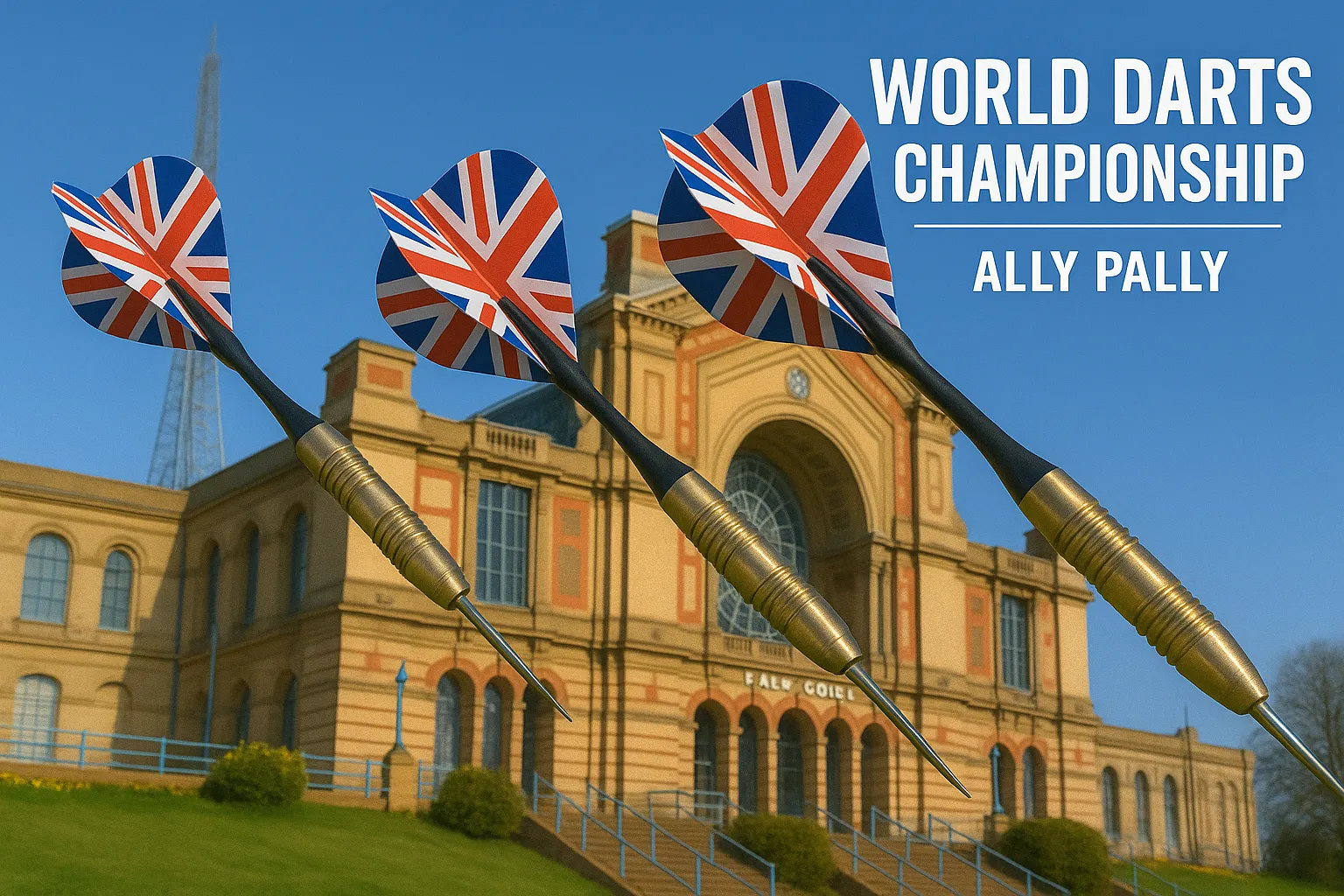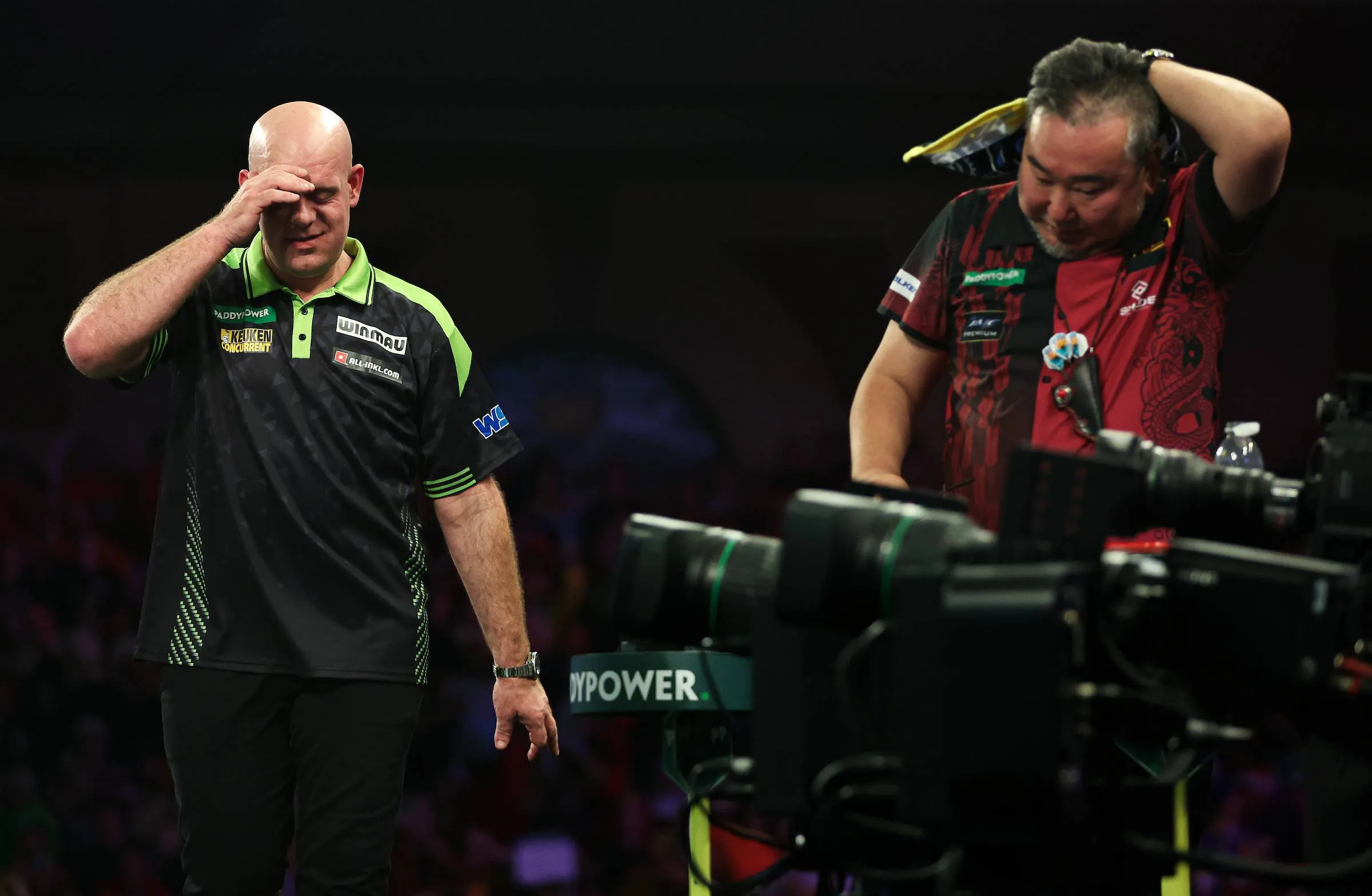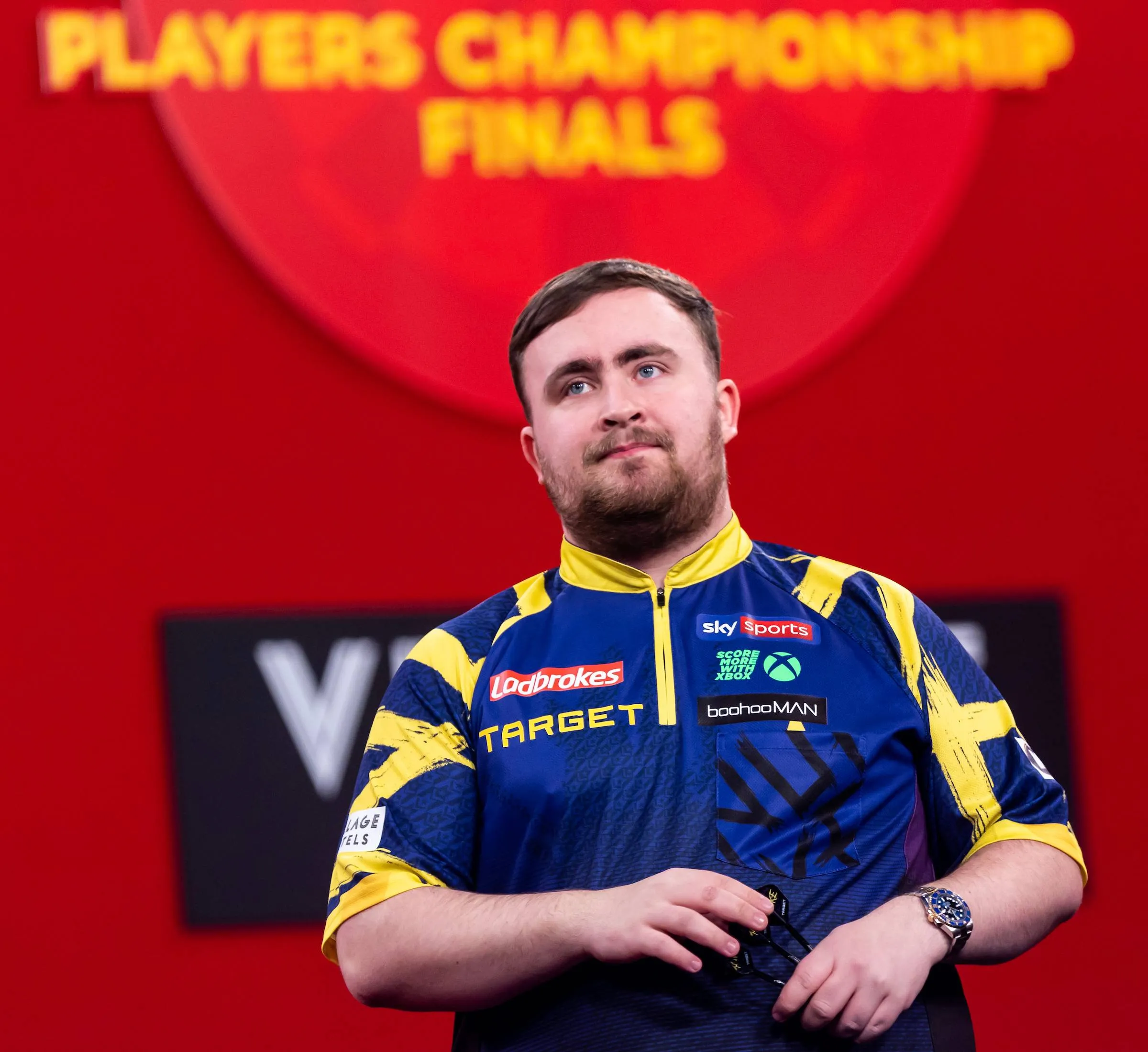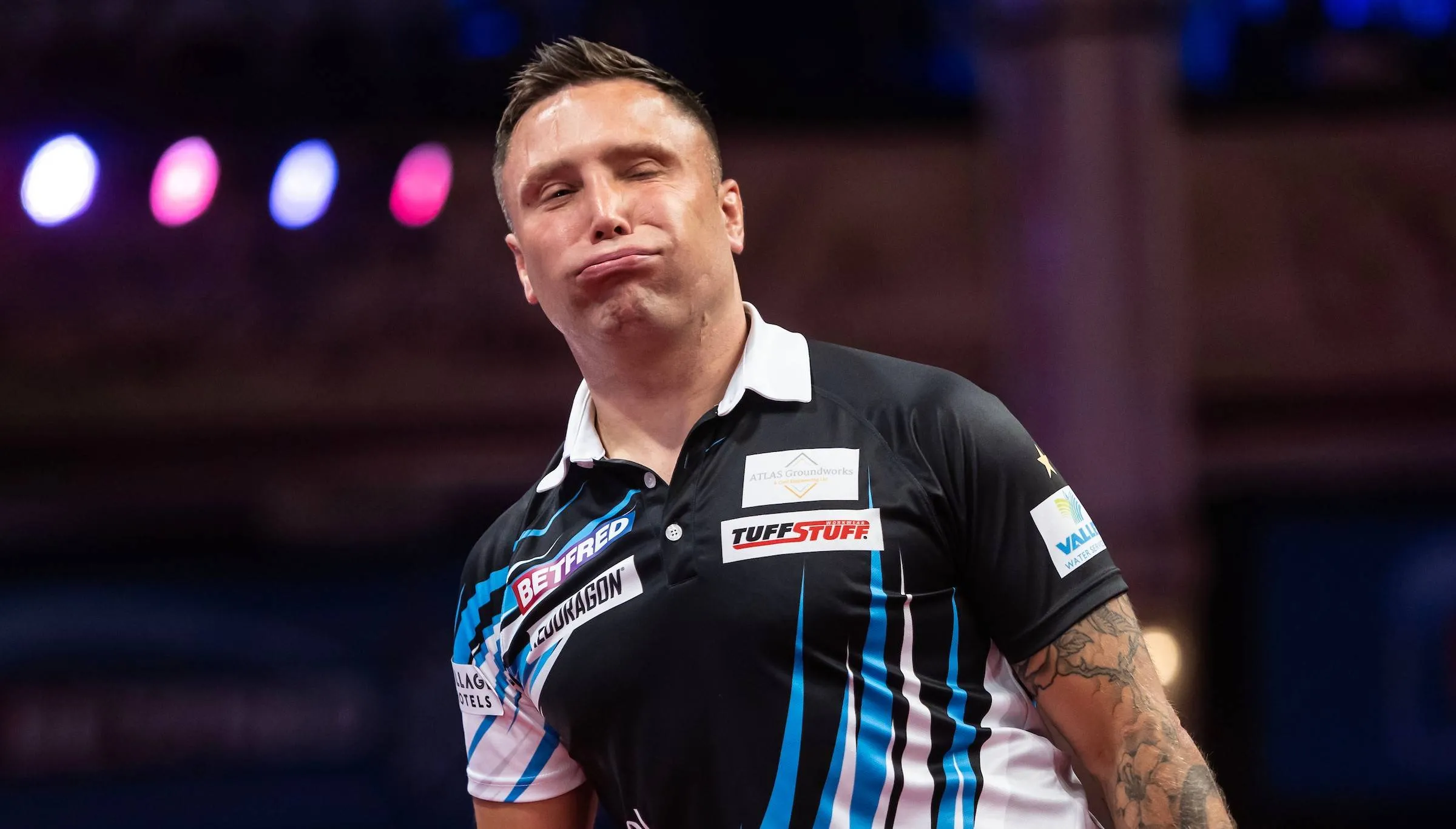Women in Darts: Sherrock adds noise to the silent revolution
FeaturesWednesday, 25 December 2019 at 09:00

Tuesday December 17, 2019 will go down as a special moment in women's darts. In women's sport, even. Or in sport, generally.
Fallon Sherrock stepped onto the Alexandra Palace oche, not aiming to be a pioneer for women everywhere, but simply hoping to perform at her best on her World Darts Championship debut. She didn't quite do that, as she admitted later. What Sherrock did, however, was average over 91 and push Ted Evetts all the way to a dramatic conclusion, at which point she pounced with the double 18 that made history.
Unsurprisingly, there was an explosion of hype trailing in the match's wake. Sherrock become an icon, a trailblazer, and the person every media outlet wanted to speak to. The 25-year-old from Milton Keynes could suddenly count on Billie Jean King and Piers Morgan as her biggest fans. That excitement went up a notch when Sherrock sent 11th seed Mensur Suljovic packing to seal a return after Christmas. She had proved that women could beat men on the very biggest stage in darts. There's no doubt that it was a huge milestone.
But Sherrock's success wasn't the catalyst for big change in women's darts - it's a symptom. The revolution has been building around us for a long time now. Or perhaps that should be evolution.
Growing change
As a sport born in the most social of environments - pubs and bars - and as one that doesn't require particular physical attributes, darts is something any gender can excel at.
Female darts players have been a presence since the birth of organised leagues and tournaments. However, there's no arguing with the darting scene having predominantly been a masculine arena. Women's darts has therefore played second fiddle, to the point where, once the BDO established women's events, the prize money involved hasn't ever been enough for most players to commit to the sport full-time.
The PDC has been looked to often as a possible agent of change. Since its bitter split from the BDO and Barry Hearn's introduction, the PDC has been darts' cash cow. The BDO gave female players a solid base for regular tournaments; the question was whether the PDC would give them the next step up.
There have been pioneers aiming to make that step. Anastasia Dobromyslova is foremost among them; the Russian has appeared in multiple PDC majors, became a PDPA member, and famously beat Vincent van der Voort at the Grand Slam. Those with short memories who criticised the PDC introducing women's qualifiers for the World Darts Championship may need to be reminded that the idea's hardly new; the same idea was floated at the start of the century, and led to Gayl King being invited to become the first woman to appear at the PDC's biggest event.
A Women's World Championship was held by the PDC just once, with a £30,000 total prize pot (the men's pot was £1 million at the time). Stacy Bromberg became the only PDC women's world champion to date - the tournament wasn't continued.
It's in recent years where the PDC's vision has started to reform, and take shape. The women's qualifiers for the 2019 and 2020 World Darts Championships resulted in Sherrock, Dobromyslova, Lisa Ashton and Mikuru Suzuki all having their chance on the stage. Having four of the best players the women's game has produced to date is a win for the PDC - and the depth in talent shows when it's considered that the only one of the quartet not to win a women's world title is the one currently making waves. Ashton and Suzuki being invited to the Grand Slam - apparently a move entirely pushed by the PDC - was another positive.
But darts isn't all about the players. Sherrock will take the headlines, but the growth of the women's game goes beyond her exploits. To prove it, we spent some time at the World Darts Championship, talking to people who could show us just how much the women's movement is developing.
Growing support
When you picture the World Darts Championship at the Alexandra Palace, you'll see the fans. People wandering about the ornate halls of the Palace, dressed as traffic cones or penguins, or bedecked in Christmas jumpers, likely hoisting pitchers of beer.
What we're starting to see is a growing female presence in the crowd. A PDC spokesperson has said that 35 per cent of those attending this year's World Darts Championship are women; double the total achieved five years ago. The number watching on TV is harder to count, but the pattern likely follows on the small screen. Seeing female players appearing and succeeding on the big stage can only have a positive effect on those numbers.
Event security plays a big part in making sure the atmosphere remains a welcoming one for all comers. We spoke with Mandie, a member of the security team who has been at the darts for 16 of the 22 years spent in the job to date.
Mandie explained that she didn't feel she has been treated differently by the crowd due to her gender - critically, any sexism is grounds for immediate removal from the venue. Unfortunately, she has had to step in on those grounds a number of times before, including at the World Darts Championship. There is currently a raging debate surrounding the handling of bigotry in sports crowds; the 'no tolerance for intolerance' policy is a good blueprint.
Behind the mic
It was just 12 years ago that Jacqui Oatley became the first woman to present on Match of the Day, a TV sporting staple. Now, Oatley is the face of ITV's dart coverage and a committed supporter of the women's game. Sky have also called on talented female journalists to be part of their own coverage. In addition, Laura Turner has proved to be a welcome addition to the gantry as a pundit.
Laura Woods, who has fronted Sky's presentation of multiple sessions, is at her 10th World Darts Championship this year. A veteran of sports presenting, who has covered the biggest football events, Woods admits that the darts has a particularly unique pull.
“My dad’s a big fan, so it’s something that’s always been on in our house," said the Sky anchor.
“To come and actually work on it felt very different. The whole atmosphere, the crowd, the lighting - I remember thinking that I’d never felt anything like it.
“It’s quite nostalgic. Every time you come back, it’s the same smell, the same feeling. It’s something that, for me...I work in a lot of different sports, and there’s not something like this. It’s synonymous with Christmas."
Those thoughts were echoed by Mikki Austin, another member of the Sky team. Best known as a player and director in netball's Super League, as well as a Sky journalist, Austin has been conducting darts interviews since July's World Matchplay.
“Darts, for me, is synonymous with my family. Especially this tournament, the World Championship - sitting around and watching it over Christmas and New Year is a tradition for us," said Austin.
“Times have changed. Darts players used to be a lot older, therefore a little more self-assured. They’d be more direct and to the point. There are more young players now - a little more chatty and less cutthroat!”
Woods reserved particular praise for Turner, who has joined the likes of Devon Petersen and Mark Webster as active players participating in punditry.
“What I like about Laura as well is she gives us a lot of insight into the BDO that we don’t really know over in the PDC. She’s come in and handed us so much knowledge, so much insight - I love that about her.
“It’s quite nice to have another girl around! The balance works, and people who didn’t think it would work beforehand - I think they’re seeing that it’s just completely normal.
“If you’re still having problems with it, I don’t know what sport you’re watching."
While Woods did show some sympathy for male players who say there's an extra dimension to losing against a woman, she feels that angle dissipates under the Ally Pally spotlight - and will continue to diminish as female darts grows.
“Like they say, you play the board, don’t you? Once you really get into a game, I imagine you don’t think about where they come from, or their gender.
“I think it will get better and better for women. We’ll see more of them, and we’ll see more success.”
Under the lights
It's worth remembering that Sherrock and Suzuki aren't the only women gracing the Alexandra Palace stage this year. They're not the only pioneers, either. Daniela Bata-Bogdanov has become the first female scoring official at the World Darts Championship, and has performed an important role in a number of games with minimal fanfare. Bata-Bogdanov, who is only the second Hungarian to take to the Ally Pally stage, has relished the atmosphere.
“Yes, I’m really enjoying every second. It’s special for me - I’ve worked on big tournaments before, like the World Cup and World Series, but never a tournament like this.
“This [tournament] is something special, for everybody in the world who watches darts, or knows something about darts."
The route into officiating isn't an obvious one. Like most, Bata-Bogdanov played first, and through a twist of fate put her arithmetical know-how to the best possible use.
“I used to play darts. Then I scored an Eastern European qualifier, and after that, everything just comes," she explained.
“I like maths, I like to be on stage, I like to be in front of people. I’m a teacher, so I’m always in front of kids! Somehow, everything comes together.
“Everybody wants to see new things, I think; not just in darts, in every sport. I think what’s happening in darts right now is very, very good."
And can more women follow in her footsteps?
“Why not? [My advice is] Just to play darts, to be good at maths, to be fast. The first thing for me is that I love this sport, very much. When I’m up on stage, I’m not thinking of it like a job.”
It isn't all that long ago that the main debate surrounding women in darts was the decision not to involve the walk-on girls that regularly escorted players onto the stage. Some cried foul, calling it a PC-fuelled boycott. Daniella Allfree and Charlotte Wood went on TV to argue their case. The opposition didn't really gather steam, however. Walk-on girls weren't denied the right to appear at exhibitions; it was decided that they didn't quite fit with the future vision for televised darts.
The PDC dancers are still a fixture at the World Darts Championship, having not been drawn into the debate. Cheerleading requires athletic ability and dance training, and while its status as a sport has never been ratified, it takes serious professionals to do a job the Alexandra Palace crowd may be taking for granted.
We spoke with Sophie-May, Abbi, Alison and Zophie, who are appearing at this year's World Championship, to discuss their role in the festivities.
“We help the crowd, to build the atmosphere. It’s more atmosphere than anything.
“As soon as the music goes up, we’re dancing and getting the crowd pumped up. Without us, there’d just be music and no visuals until the players get on the stage."
There's a clear keenness to be separated from the walk-on girls as well, something which stems from a certain professional pride.
“It did cross our minds that we might be swept up into [the walk-on girl debate]. We’re very different from the walk-on girls. We’re professionally trained, we’ve trained since we were children, and dance full-time.
“Also, we’re there for crowd purposes. Walk-on girls were there for TV."
What's rightly pointed out during this conversation is that different women's roles in darts are growing simultaneously, which can only be positive.
“It’s so, so good. Women can be involved in darts in all kinds of ways. What we do is a sport as well, a very physical activity. It’s great to see women improving in all kinds of ways.
“Women can be equal in everything, and better in a lot of ways. [Men] can’t dance the same way we can!”
The challenge ahead
There are two viewpoints which need to be firmly stamped out. The first is what you may call old-school bigotry: that women will always be inferior, that their inclusion is tokenism, that it's all PC gone mad, blah blah. Those people will always feel the need to pipe up, but they can be ignored.
Another is the suggestion that everyone's accepted that men and women are equal, and that we should stop making such a big fuss about it. That's naive at best, maliciously dismissive otherwise. Women's growing prominence in sport absolutely deserves the hype - once we stop having firsts and female success in mixed environments is commonplace, that hype will organically die down. Just ask Jacqui Oatley - a women presenting or commentating on Premier League football barely raises an eyebrow now, which absolutely wasn't the case in 2007. Few will question Laura Turner's involvement in future tournaments, given the quality of punditry so far.
Women in darts, like the ones we've spoken to here and the many beyond, should be feted and encouraged to keep coming back. That side of the game then grows, bringing normality, and at some point, hopefully true equality.
With the BDO possibly on the cusp of implosion, discussion on what the PDC can or will do has heightened. It's not especially clear which route would be best. A separate women's tour helps to grow the game, but doesn't allow the top players to compete against the very best on a weekly basis. Not having one still allows everyone to attend Q-School, which is fine for players like Sherrock or Ashton (who can secure sponsorship, and who'd definitely perform on the Challenge Tour - as Ashton has a number of times). It's not necessarily good for all, however.
Sherrock asked "why not both?" Perhaps that's the way forward for players. But as we've tried to make clear here, the goal of true egalitarianism in darts goes beyond the players. An equation for success needs to include offering female darts players and fans another route, like following Daniela Bata Bogdanov into officiating. We'll get another first at some point when a woman calls a match. Higher up the chain, it would be promising to see more people joining Head of Administration Hayley Upward in the PDC's leadership group.
Sophie-May, Abbi, Alison and Zophie will be up on the stage for the rest of the World Darts Championship, and beyond. You'll see Mandie keeping a watchful eye on a crowd which is more mixed than ever. Women have always been in darts, and now it feels like more opportunities are being given for them to be noticed.
Fallon Sherrock is going to have a big impact on that now. With all of her media appearances, Sherrock is highlighting to watching women and girls that darts is something they can get involved in, whether they're young or old, if they have a child as Sherrock does, if they have a full-time job. She's broadcasting a message that has been getting out there for a long time now.
If you're a supporter of women's darts, now is a good time for you. It feels from all corners that the only way is forward.
claps 0visitors 0
Just in
Popular news
Latest comments
- It's his attitude. Zero fight when it's not going his way and looks like the darts owe him a treble. He carries every poor visit into the next one. Maybe he should decide one final year, goodbye tour and f*ing enjoy itBandB18-12-2025
- Difficult one. Obviously has some struggles but you can't allow that behaviour. The damage to his hand from punching and blocking the pyrotechnics will keep him out for months anyway, but ban to the matchplay and fine whatever his prize money was for this event, with a heavy suspended ban on top.BandB17-12-2025
- 1 year ban and £15,000 fine.medinabello16-12-2025
- can you not at least attempt to proof read these recaps? the whitlock scutt one in particular is both inaccurate and mindbogglingly unreadablecolt16-12-2025
- Look, everyone knows he likes to wind up his opponents. Today,his worst,and always will be,best opponent,is himself. I don't dislike the bloke,but he can only blame himself.rick6715-12-2025
- Look, everyone knows he likes to wind up his opponents. Today,his worst,and always will be,best opponent,is himself. I don't dislike the bloke,but he can only blame himself.rick6715-12-2025
- DRA - just a warning please. Obviously not deliberate, in good spirits a s immediate apology. (P.s. Good on you Joe! Tough season, hope you keep that standard into the next round and beyond)BandB14-12-2025
- This bozo says he can't take darts any further and he's left it in a good place.....no-one cares about this nobody. The PDC was always in a good place before he came along. Does this buffon think the crowd are there for him.richieburnettrocks14-12-2025
- Yes, a warning indeed. He is coming to the buffet table, out of his way. This class A goof continues to blither about how he is playing the best darts of his life and even had the laughable audacity to say he was in the best shape of his life. He had a lucky run at Blackpool and even luckier at the World Championship and is still living off that. His form the past year especially the last 6 months completely sucks. 6 micky mouse titles mean nothing.richieburnettrocks13-12-2025
- I'm a big Huybretchs fan from when he broke through at the euros in the early days, but his action has gone. So jerky and inconsistent. Looking at where he'll be in the rankings, hopefully he can treat the new year as a new start, relax, enjoy it and push on without the pressure of defending lots of ££BandB12-12-2025
Loading




